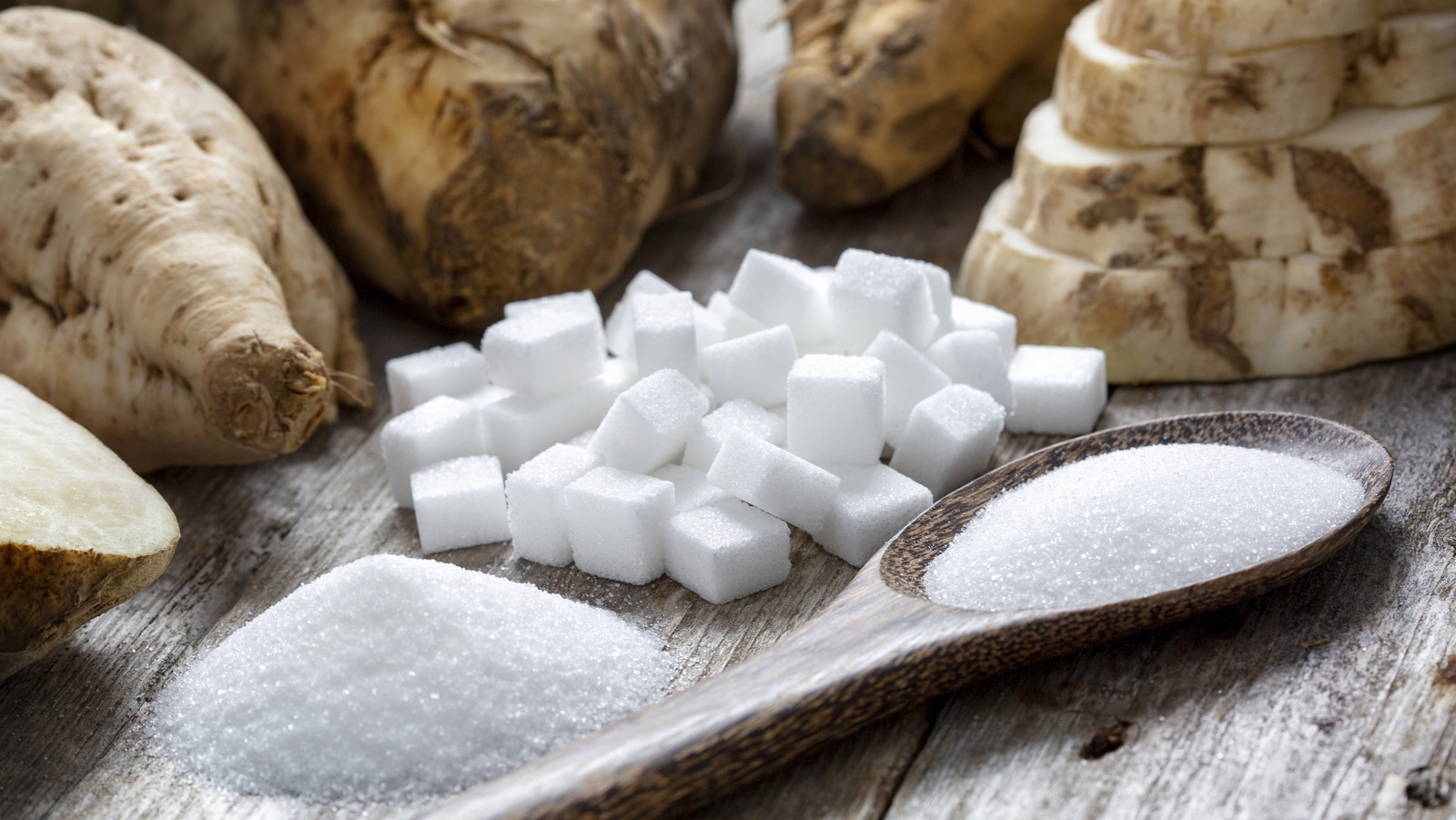
"While many people don't notice a difference in taste between the two types of sugar, those with a refined palate can detect subtle differences. Some people find that beet sugar has a neutral taste that isn't very sweet, and some detect an earthy, burnt sugar flavor. Others think that cane sugar has a sweeter, richer flavor with under-notes of caramel or molasses."
"It also creates a softer, more tender crumb when baking cookies, cakes, and brownies. Beet sugar adds a crunchier texture to foods and baked goods and doesn't caramelize well. Some chefs also notice that brown sugar made from beet root results in a dryer baked good, and therefore prefer to use cane sugar. Cane sugar is very versatile and can be used in almost any form of baking and cooking, while beet sugar is more widely used in food processing plants and production facilities."
Both cane and beet sugar are harvested from plants and refined into sucrose, yielding white granulated sugar, brown sugar, or molasses. The two sugars are chemically identical and behave similarly in cooking and baking, but subtle taste differences exist: beet sugar can taste neutral, earthy, or burnt, while cane sugar often tastes sweeter and richer with caramel or molasses notes. Cane sugar retains some natural molasses, caramelizes more easily, and creates a softer crumb. Beet sugar contributes extra crunch, does not caramelize well, and is commonly used in food processing rather than delicate baking applications.
Read at Tasting Table
Unable to calculate read time
Collection
[
|
...
]